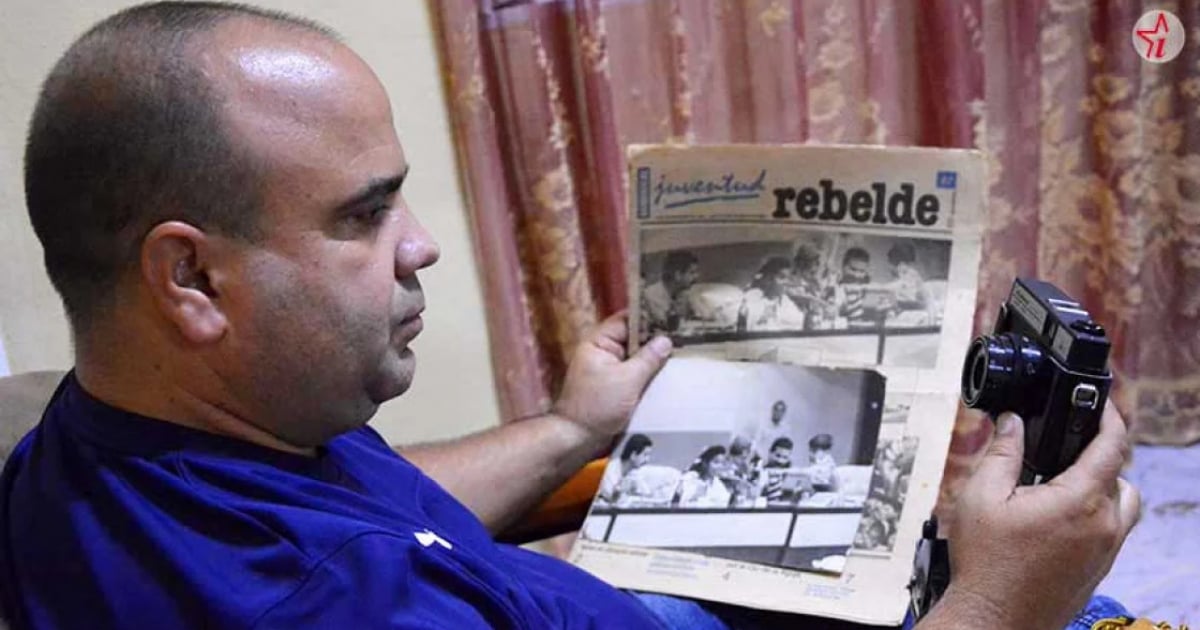A former high-ranking officer from Cuba's Ministry of the Interior (MININT), closely associated with Fidel and Raúl Castro, is currently residing in Boca Raton, Florida. Héctor Alejandro Hernández Morales, aged 46, previously served as a lieutenant colonel within the repressive apparatus of the Cuban regime. He is now waiting for a response to his application for permanent residency in the United States under the Cuban Adjustment Act, after entering the country in August 2024 on a tourist visa.
Journalist Mario J. Pentón shared this information on his website, revealing the story of Hernández Morales' past in Cuba. Héctor Alejandro Hernández grew up in a family deeply involved with state security, being the son of the late Lázaro Cirilo Hernández, who was the personal bodyguard for the Castro brothers. His own rise within MININT saw him assume strategic roles, such as leading the political police in Morón, Ciego de Ávila, and taking on specific tasks within the escort team for high-ranking leaders, including Fidel Castro himself.
Hernández publicly stated that he viewed his work as a continuation of his father's legacy, "protecting the physical and moral integrity of the country's top figures." His proximity to the inner circle of power in Cuba was no accident. His childhood was steeped in the veneration of the dictator's image. In 1991, at just 12 years old, he was featured on a famous front page of Juventud Rebelde after being photographed with Fidel Castro during the first pioneer congress. Decades later, in interviews with official media, he proudly recalled his direct interactions with the Commander, whom he described as a man of extraordinary political acumen.
Another of his assignments was in the northern keys of Ciego de Ávila, where he served for over a decade as a State Security officer in this significant tourist and militarily strategic area. Hernández Morales arrived in the United States with one of his daughters; his wife, Yisel Cabrera, and another daughter were already there, receiving medical treatment for cancer. Initially, the family was welcomed by a close relative, Rolando García, who has declined to comment on the situation.
Since coming to the U.S., the Cuban ex-military officer has kept a low profile: he has closed his social media accounts and avoids public appearances. As a result, he has shown no signs of breaking with the regime or expressing remorse for his role within MININT, particularly in a context where many Cubans demand justice for the repression during the July 11 protests, in which he might have had some level of involvement, although there is no evidence of his participation in those events. The ex-officer does not appear on the list of 100 Cuban repressors submitted by Congressman Carlos Giménez to the Department of Homeland Security.
Concerns about the entry of figures linked to Havana's repressive apparatus into the United States have grown in recent years. Organizations such as the Foundation for Human Rights in Cuba have warned about the presence of more than a hundred identified repressors living on U.S. soil. Some cases have resulted in arrests, deportations, or even voluntary returns to the island. The situation reignites the debate over the admission of former regime officials to the United States and the need to scrutinize the backgrounds of those seeking immigration benefits more rigorously. Is the United States doing enough to prevent authoritarian agents from finding refuge on its soil? The question becomes increasingly urgent as similar cases multiply.
Cuban Ex-Officials in the U.S.
Who is Héctor Alejandro Hernández Morales?
Héctor Alejandro Hernández Morales is a former high-ranking officer from Cuba's Ministry of the Interior, closely associated with Fidel and Raúl Castro. He is currently living in Florida, awaiting a decision on his U.S. residency application.
What is the Cuban Adjustment Act?
The Cuban Adjustment Act allows Cuban natives or citizens who have been admitted or paroled into the United States to apply for permanent residency after one year of presence in the U.S.
Why is there concern about former Cuban officials in the U.S.?
Concerns arise from the potential for former Cuban officials involved in repressive activities to seek refuge in the U.S., which may conflict with the country's values of freedom and justice.
